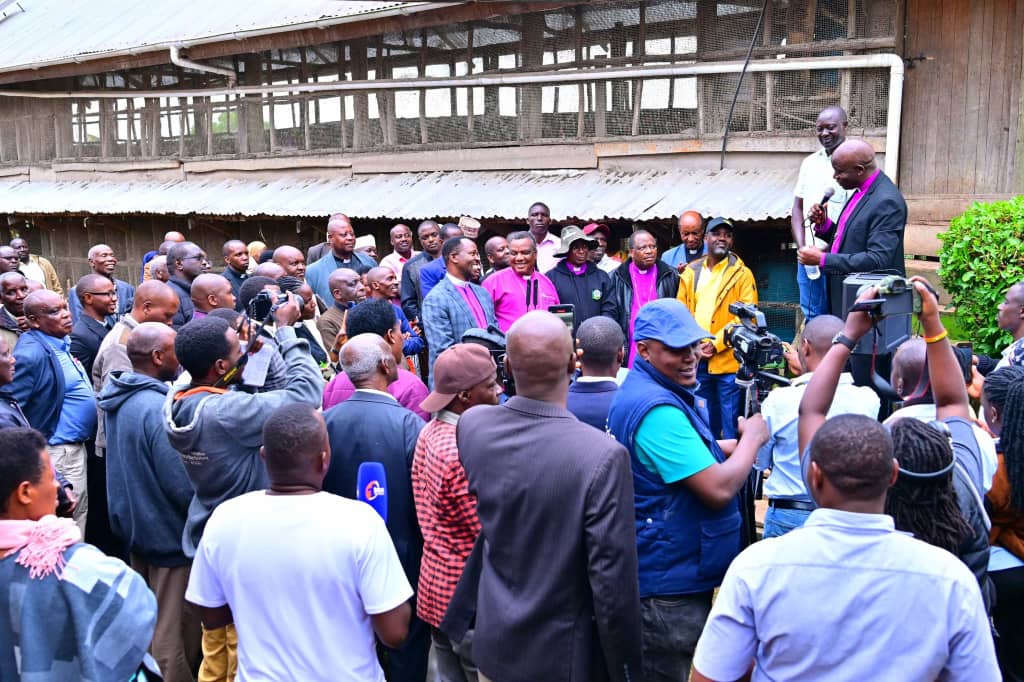Religious leaders in the Kigezi Sub-region have been urged to embrace modern agriculture to improve their livelihoods and inspire their followers to do the same. The call was made by Deputy Speaker of Parliament Thomas Tayebwa during a tour of Kana Model Farm in Rwengaju Model Sub-county, Kabarole District, on Monday.
Tayebwa led a delegation of clergy from the Catholic, Anglican, Pentecostal churches, and the Muslim faith. The farm, owned by modern farmer Richard Nyakana, showcases how 1.3 acres of land can be transformed into a highly productive enterprise.
Tayebwa noted that many religious leaders depend on gifts and support from believers, which are often inadequate for their day-to-day needs. He challenged them to utilise the small pieces of land they own—as well as land under religious institutions—to establish viable agricultural projects.
He said Nyakana’s transformation of a small acreage into a thriving enterprise demonstrates that significant achievements are possible with passion and determination. Tayebwa also appealed to the clergy to support the government’s efforts to fight poverty and promote socio-economic transformation, saying communities trust their guidance.
He acknowledged that Kigezi faces severe land fragmentation, contributing to food insecurity and rising poverty levels, but said adopting modern, intensive farming models can help families and institutions thrive despite limited land.
Bishop Onesmus Asiimwe of the North Kigezi Diocese admitted that he had previously doubted the viability of the one-acre model but now believes it can work after seeing the farm firsthand. He encouraged clergy not to end with the tour, but to implement what they learned.
Monsignor Dr. John Vianney, the Vicar General of Kabale Catholic Diocese, urged religious leaders to lead by example so that believers can learn from their practices. Bishop Onesmus Ngoboka Byengoma of the Pentecostal Church said believers need to be economically stable to fully embrace and live by the word of God. He encouraged Christians to work hard and remain productive.
About Kana Model Farm
The 1.3-acre farm engages in poultry, zero-grazing dairy farming, biomass generation, animal feed processing, and farmer training. Nyakana started the farm in 2009 with 200 hens after securing a loan from a local farmers’ association. Today, the farm is valued at 500 million shillings and has grown into a diversified agribusiness.
It currently has 10,000 chickens (both layers and broilers), 13 dairy cows producing 165 litres of milk per day, a biogas plant, manure processing operations, and an animal feed production facility. The farm employs at least 15 youths. Nyakana says the farm is anchored on four pillars—food security, household income, value addition, and marketing—with a fifth pillar focusing on home improvement and hygiene. He revealed plans for further expansion under a three-year strategic plan, which aims at acquiring more land and establishing a feed processing and preservation plant. He noted that long-term storage of feeds remains a major challenge.
Nyakana encouraged young people to work hard, stay disciplined, and remain committed if they are to succeed in life. He urged them to consider agriculture as a profitable and fulfilling venture.
***URN***

